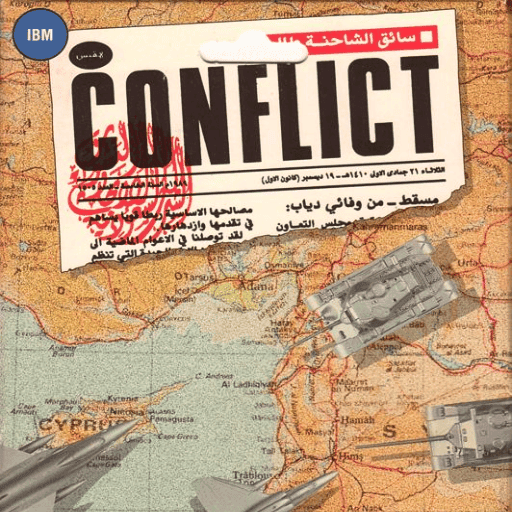
Conflict is a classic political strategy game published by Virgin Games that casts you as a leader navigating the volatile Middle East. You balance diplomacy, military planning, and resource management while responding to shifting alliances and sudden crises. The design rewards foresight and negotiation as much as bold action, inviting comparisons to genre touchstones like Balance of Power and Shadow President. Whether you prefer cautious statecraft or decisive maneuvers, the game’s systems let you play your way. Explore this timeless strategy game online, refine your approach each session, and test how long your coalition can survive under mounting pressure.
Conflict is a political strategy game published by Virgin Games that captures the delicate calculus of power in the Middle East. Rather than focusing on battlefield micro-management alone, it immerses you in the machinery of state: you allocate budgets, weigh cabinet advice, cultivate partners, and prepare contingencies for when talks collapse. The premise is simple yet enduringly rich—preserve stability while advancing national interests in a region where every move has consequences. What makes Conflict so compelling is how it transforms abstract geopolitics into tangible, turn-by-turn decisions that feel both personal and far-reaching.
From the opening moments, you’re presented with competing priorities. Infrastructure promises long-term resilience, but defense spending buys the leverage to deter aggression. Intelligence briefings hint at unrest and covert plots, while diplomatic cables suggest openings for treaties or trade. None of these levers are standalone solutions. Like the best strategy games, Conflict makes success a product of synergy: modest investments, careful timing, and a clear narrative for your government’s agenda. When a crisis erupts, your past decisions either cushion the blow or magnify the shock.
Conflict’s mechanics encourage prudence and preparation. Military strength matters, yet wars are expensive, risky, and rarely the shortest route to peace. Diplomacy can shift the board without firing a shot, particularly when paired with targeted aid or shared security pacts. Intelligence operations, meanwhile, operate in the gray space—useful, but never foolproof, and always shadowed by the risk of backlash if exposed. Each subsystem feeds the others, forming a dynamic loop that invites you to craft multi-step plans rather than chase one-turn victories.
The economic model plays a quiet but decisive role. Budgets ebb and flow with production, trade, and public sentiment, forcing you to assign priorities instead of wishing for infinite resources. Spend too freely on arms and your domestic stability erodes; spend too little and you may invite opportunism from rivals. Conflict’s genius lies in how it turns these resource dilemmas into narrative beats. You are not just moving sliders; you’re explaining—if only to yourself—why this year’s plan trades short-term popularity for long-term security.
Every few turns, the game throws you a decision point: an ultimatum, a border incident, a diplomatic overture, or a covert scandal. The correct response rarely announces itself. Should you escalate to demonstrate resolve, or de-escalate to buy time for a coalition to form? Do you accept a treaty with subtle concessions now, or hold out for a stronger position later? Conflict trusts the player to read the moment and act, then live with the aftermath. Win or lose, your path feels authored by your own judgement, not by scripted outcomes.
Comparisons to Balance of Power and Shadow President are inevitable, and favorable. Like those landmarks, Conflict prioritizes the psychology of international relations over flashy theatrics. What distinguishes it is the clarity of its feedback. Outcomes are legible without being predictable, so you learn from failure without feeling punished by randomness. Each playthrough becomes a case study in statecraft: what worked, what didn’t, and where your instincts led you astray.
Conflict is approachable enough to start, but its depth unfolds over time. Early on, you’ll experiment with budgets and basic diplomacy. Soon after, you’ll recognize patterns—how certain neighbors react to troop movements, how aid can soften opposition, how intelligence can preempt surprises. With experience, you begin to think in seasons and years rather than turns, sequencing reforms so public support peaks when you need it most. That growth is satisfying, because the game never stops rewarding careful planning and measured risk.
The interface reflects the game’s priorities: information first. Reports, briefings, and summaries give you the essentials without clutter. This clean presentation keeps your focus on choices and consequences rather than wrestling with controls. Even today, the restraint feels elegant. It lets your imagination fill in the maps, meetings, and news tickers that your decisions would generate in a living world.
You can play Conflict online free in a browser, enjoying the full strategy experience without restrictions. The interface translates naturally to modern displays, and the turn-based structure suits mobile devices as well as desktops. Because the game emphasizes planning and decision-making over twitch reactions, it remains comfortable to play on the go. Whether you have a few minutes for a single turn or the time to shepherd a grand plan from crisis to détente, Conflict adapts to your pace and keeps your attention fixed on what matters—choices and their ripple effects.
What truly endures is how respectfully Conflict treats its audience. It assumes you can weigh tradeoffs, anticipate counter-moves, and accept that good options sometimes collide with harsh realities. The game never insists on a single solution; it offers a canvas for your political philosophy. Perhaps you prefer coalitions and incrementalism. Perhaps you champion deterrence and decisive action. Conflict will challenge both, not by contrivance, but by placing your ideas under pressure from rivals with agendas of their own.
Decades after its debut, Conflict remains relevant because its subject—managing limited resources amid competing interests—is timeless. The names and borders may shift across history, yet the puzzles of trust, credibility, and public will persist. As a result, each session feels fresh. New events collide with old plans; familiar neighbors surprise you with different personalities; a small concession today unlocks a breakthrough tomorrow. No two games tell the same story, and every finished campaign leaves you with lessons you’ll apply on your next run.
Conflict is a hallmark of political strategy design: elegant, tough, and endlessly replayable. Its controls are straightforward—navigate menus, review reports, allocate budgets, and confirm actions with deliberate clicks or keypresses—so the complexity lives in the thinking, not the interface. If you enjoy strategy that prizes intellect over reflexes, few classics reward your attention as richly as Conflict.
All used codes are publicly available and the game belongs to its original authors.
Share game
Share game
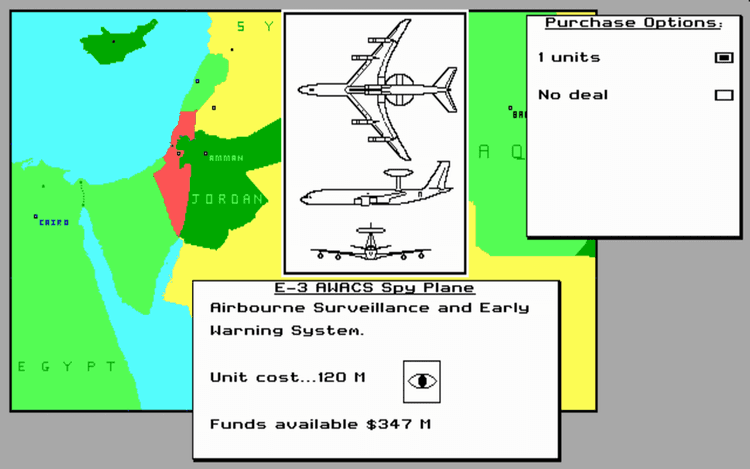
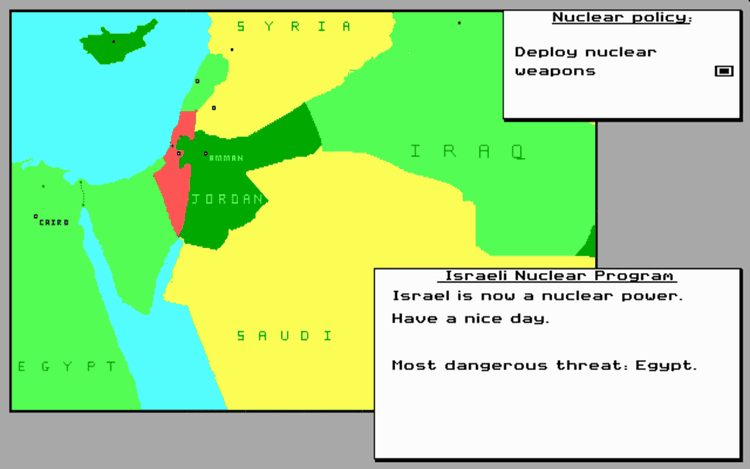
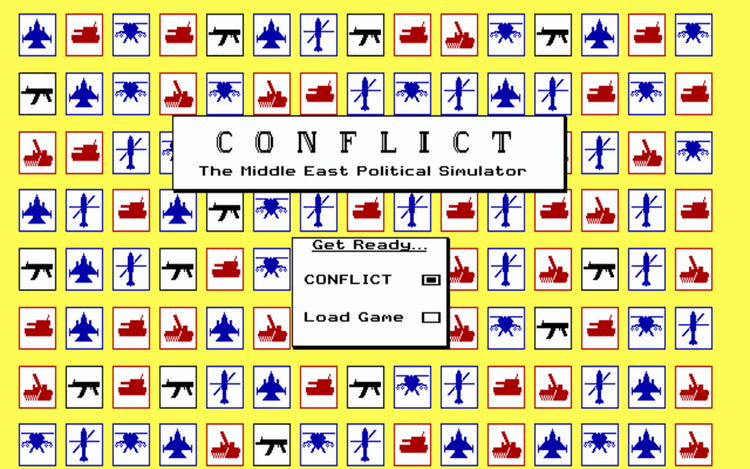
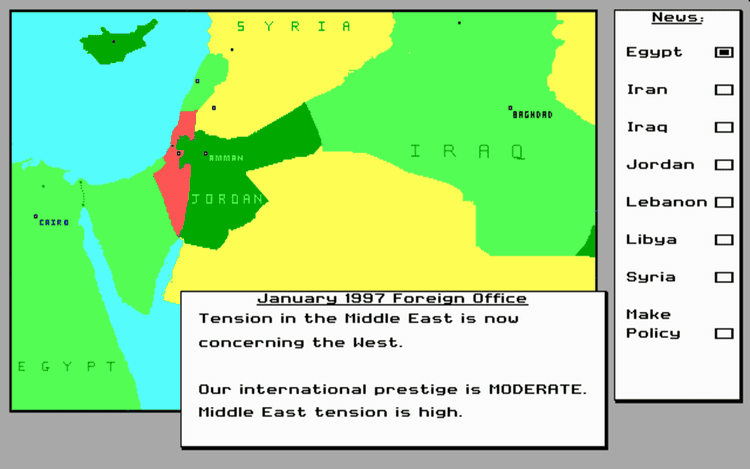
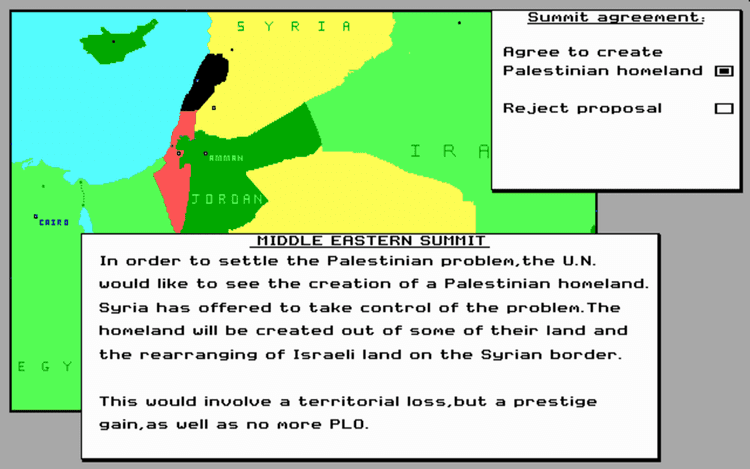
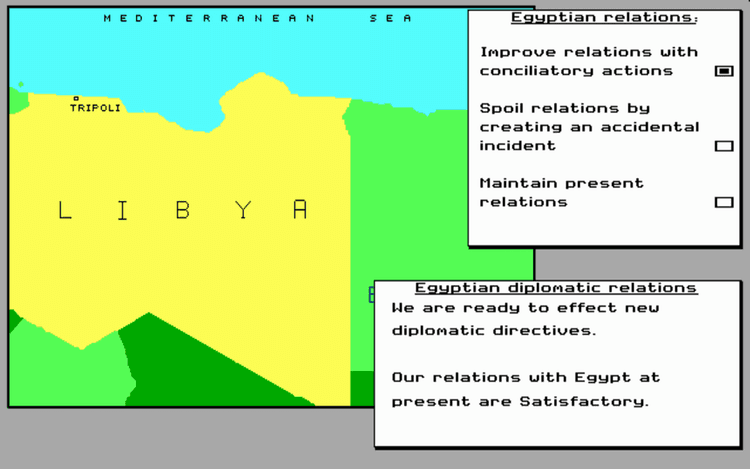
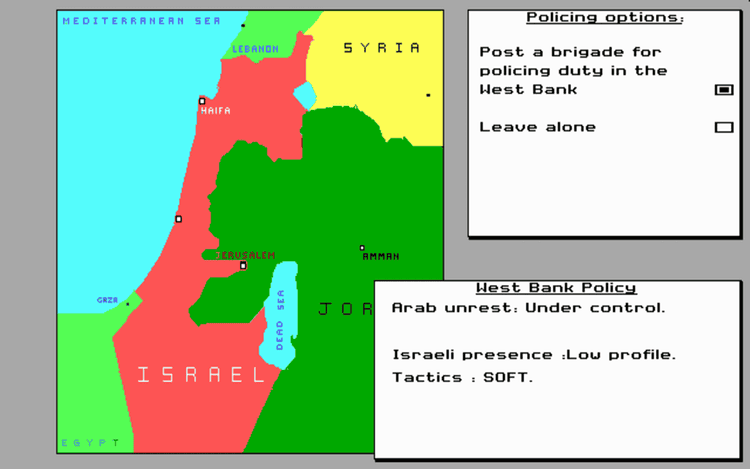
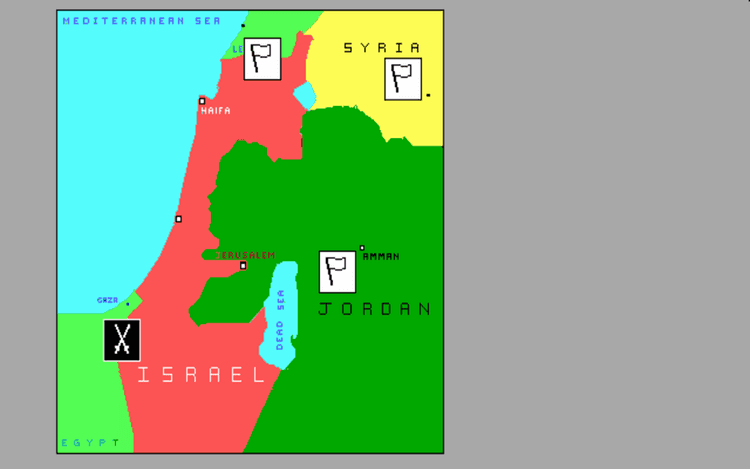
Share game